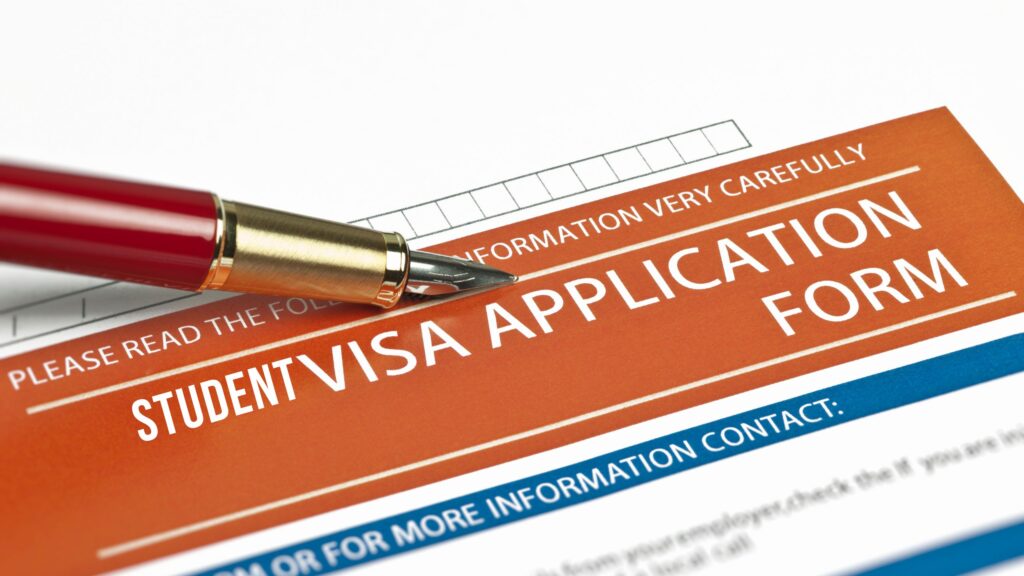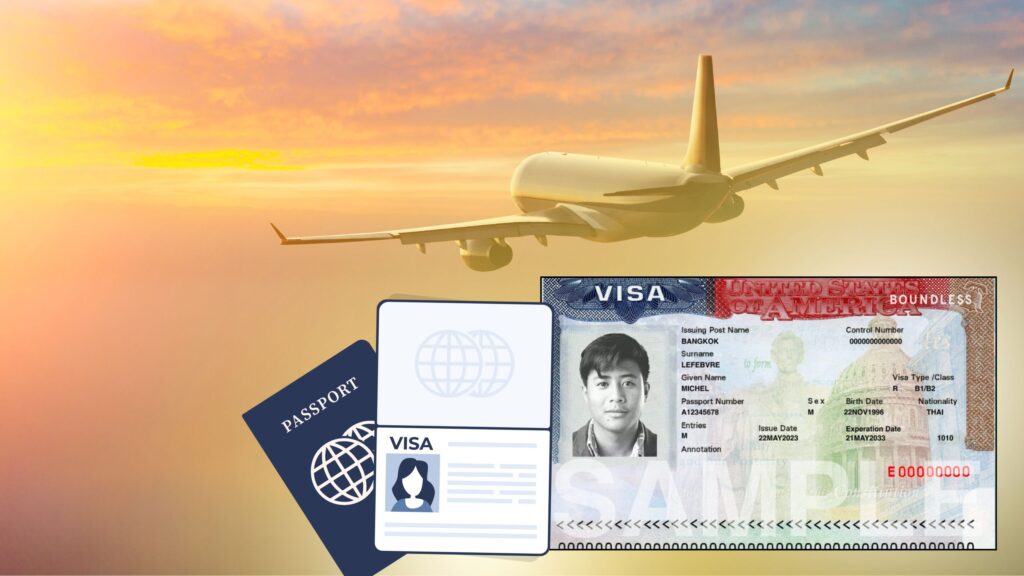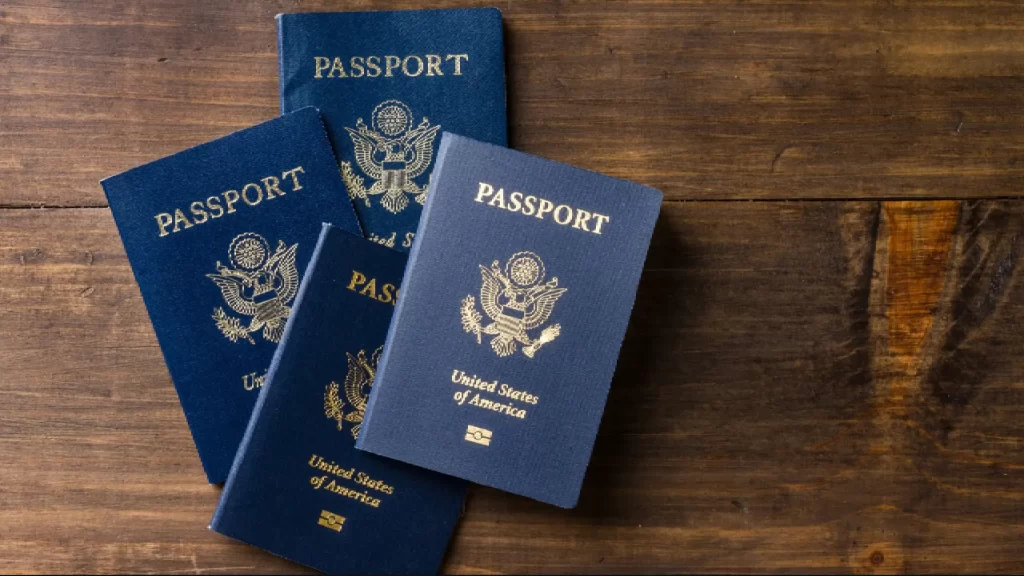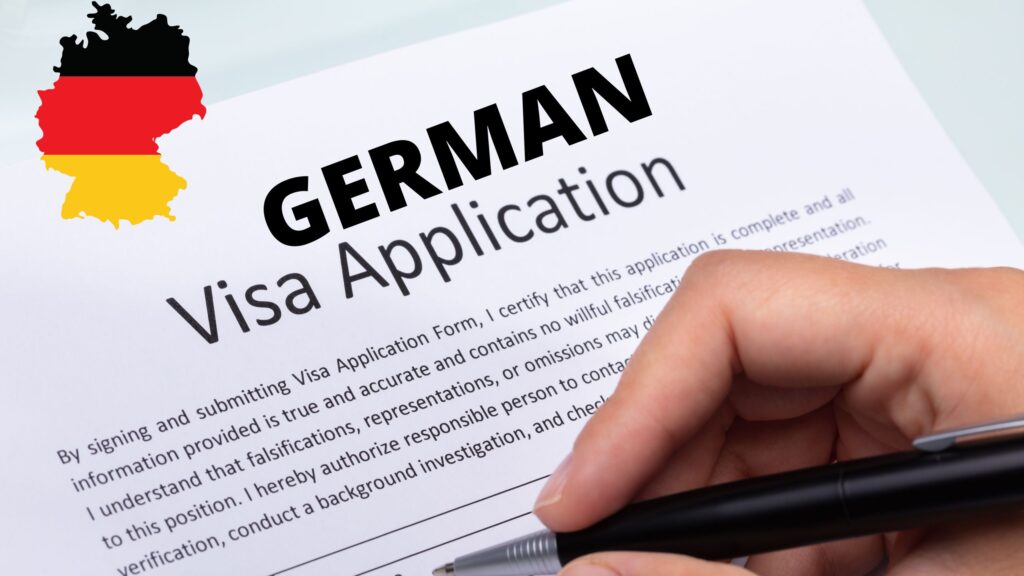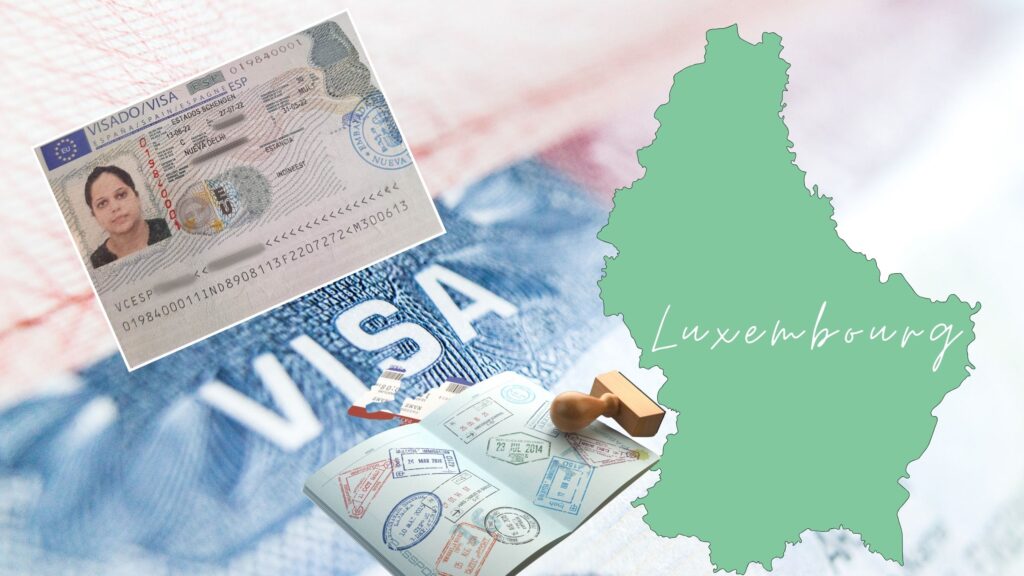Stepping into a new country for education is more than just a journey – it’s a life-changing experience that begins with understanding the essentials of a student visa. For students dreaming of studying abroad, navigating the Student Visa, Process, Requirements, Fees & Rejections can feel overwhelming at first. But don’t worry, This guide is here to simplify the process, explain what you really need, break down the costs, and help you avoid common mistakes that could lead to rejection. Planning for the USA, UK, Canada, Australia, or any other country, getting your student visa right is the first and most important step toward your global education journey.
What is a Student Visa?
Student visa is a legal immigration document issued to students by another country that allows them to study for a certain period of time. Student visas are commonly used by students at colleges, universities, and specialty institutions. Prospective students are generally required to apply for and obtain a student visa before they start school in the host country. These visas are considered non-immigrant visas, which means holders must abide by certain rules to retain their status and stay in the country. Being granted a student visa doesn’t necessarily grant individuals the same rights and privileges as citizens, such as voting.
Student Visa Types
There are different types of student visas and based on your circumstances you can choose a one. In Australia, there are 7 different types of student visas whereas the USA offers 3 different types of student visas including F1, M1 and J1 Visa. F1 Visa is issued to students planning to engage in academic studies in the USA at an approved school or accredited US University or colleges.
M1 is issued for those who want to engage in vocational activities or trainings at US Universities. And A J-1 visa is issued to professor, research scholars, and exchange visitors who take part in educational programs participating that promote cultural exchange. The USA student visa a type of non-immigrant visa.
Why International Students Need a Student Visa?
International students must have a student visa to study abroad because it serves as the legal authorization to enter and stay in the country. Student visa not only grants you permission to study but often allows you to access additional benefits, such as:
- Work opportunities: Many countries allow students to work part-time during their studies to help support themselves financially.
- Health insurance: Students can often access healthcare and insurance benefits during their stay.
- Residency options: In some countries, studying on a student visa may serve as a pathway to permanent residency or citizenship.
How to Apply for a Student Visa?
Applying for a student visa can feel like a big task, but it’s really just a step-by-step process. Don’t worry—we’ll walk you through everything you need to know! From filling out forms to gathering your documents, this guide will make it simple and clear. With the right information and preparation, you’ll be ready to submit your application and take the next step toward studying abroad.
Applying for a student visa involves several detailed steps. Below is a general step-by-step guide:
- Choose Your Study Destination: Decide the country you wish to study in based on educational opportunities, tuition fees, living costs, and career prospects.
- Select the Appropriate Visa Type: Each country offers various types of student visas based on course duration and level of education. For instance, the USA offers the F-1 visa for full-time students, while the UK provides a Tier 4 (Student) visa.
- Secure Admission: Get admission from a recognized educational institution. Most visa processes require a Confirmation of Enrollment (CoE) or acceptance letter.
- Review Visa Guidelines: Each country has specific visa guidelines published on their embassy or consulate websites. It’s essential to review these to ensure compliance.
- Apply Online or Offline: Depending on the country, you can apply through an online portal (e.g., Australia’s ImmiAccount) or by submitting paper forms to the local embassy.
- Pay the Application Fee: Visa fees vary by country and must be paid before your application is processed.
- Book Appointments: Schedule a biometric or visa interview appointment.
- Attend Interview or Submit Biometrics: Provide fingerprints, photos, and attend an interview if required.
- Wait for Decision: After submission, wait for the visa approval. This could take days to weeks depending on the country.
Student Visa Application Process
The Student Visa Application Process might feel overwhelming at first, but don’t worry—it’s easier than it seems! Through each step, from gathering your documents to submitting your application. With simple tips and clear instructions, you’ll know exactly what to do. Planning to study abroad for a year or a few months, we’re here to make the process as smooth as possible, so you can focus on your studies and new adventure.
The process of applying for a student visa can be broken down into several stages:
1. Document Preparation
Before submitting your application, make sure you have all the required documents, including:
- Valid passport
- Application form (completed correctly)
- Letter of acceptance from a recognized educational institution
- Proof of financial support (bank statements, sponsorship letters, etc.)
- Language proficiency test scores (IELTS, TOEFL, etc.)
- Health insurance, if required
- Passport-sized photographs
- Police clearance certificate (if required)
2. Application Submission
Once your documents are ready, submit your application either online or at the designated embassy or consulate. Be sure to check for specific country requirements.
3. Biometric Data Collection
Some countries, like the USA and the UK, require you to visit a visa application center to submit biometric data. This process includes taking fingerprints and a photograph.
4. Embassy Interview
An embassy or consulate interview may be necessary to determine your eligibility for a student visa. Be prepared to answer questions about your academic history, why you want to study in the country, and your future career plans.
5. Visa Processing
Once your application has been submitted, the authorities will process it. This may involve background checks, document verification, and processing of your biometric data.
6. Decision
Once the processing is complete, you will receive a decision on your visa application. If approved, your student visa will be issued.
Student Visa Requirements
Student visa requirements is the first step in your journey to studying abroad. While each country may have different rules, most visas need a few key documents and information. Don’t stress—this guide will break down exactly what you’ll need, like proof of acceptance from your school, passport details, and financial information. With everything in order, you’ll be all set to apply and take the next step toward your study abroad adventure!
Student visa requirements can vary widely depending on the country, but the most common ones include:
1. Academic Qualifications
Provide evidence of your academic history, such as diplomas, transcripts, and certificates. Some countries require you to meet a minimum academic standard to be eligible for a student visa.
2. Proof of Admission
Must show proof of enrollment in a recognized educational institution. This could be a formal letter of acceptance, a Confirmation of Enrollment (CoE), or an official university admission document.
3. Financial Proof
Need to demonstrate that you have enough funds to cover tuition fees, living expenses, and other associated costs while studying abroad. Typically, this involves showing bank statements, scholarship letters, or affidavits of financial support from family members or sponsors.
4. Language Proficiency
Many countries require proof of language proficiency. This can be demonstrated through standardized tests like IELTS, TOEFL, or PTE. Minimum score requirements vary by country and program.
5. Health and Insurance Requirements
Some countries require a health check-up or medical certificate, while others may ask for proof of valid health insurance coverage during your stay. Ensure that you have all the necessary health documentation before applying.
6. Passport and Photographs
Passport should be valid for at least six months beyond your intended stay. You’ll also need to submit passport-sized photographs that meet the embassy’s specifications.
7. Additional Documents
Depending on the country, you may also need to provide additional documents such as:
- Police clearance certificate
- Visa interview appointment letter
- Academic references
- Statement of Purpose (SOP)
Student Visa Checklist
Student visa checklist is a helpful tool to make sure you have everything you need for your application. It’s easy to get lost in the paperwork, but don’t worry – we’ve got you covered! This checklist will guide you through the important documents and steps, like your passport, acceptance letter, and financial proof. By following the list, you can stay organized and confident as you prepare to apply for your student visa.
Checklist to help you stay organized during the application process:
- Valid passport (6+ months validity)
- Completed visa application form
- Official acceptance letter from a recognized institution
- Academic transcripts and diplomas
- Language proficiency test scores (e.g., IELTS, TOEFL)
- Proof of financial support (bank statements, loan documents)
- Proof of health insurance
- Police clearance certificate
- Recent passport-sized photographs
- Visa application fee receipt
- Biometric data (if applicable)
- Embassy/consulate appointment letter
- Additional documents (country-specific forms)
Student Visa Interview Questions
The Student Visa Interview is an essential part of the process for anyone looking to study abroad. It’s a chance for you to show that you’re serious about your education and have a clear plan for your time abroad. The questions asked in the interview help the visa officer understand your intentions, financial stability, and future plans.
- Why do you want to study in this country?
- Why did you choose this specific course and university?
- How will you fund your education and living expenses?
- What are your future career plans after graduation?
- Do you have any relatives in the country you’re going to?
- How does this course relate to your previous studies?
- What is the duration of your course?
- How will studying abroad benefit you in your career?
- Do you have a plan to return to your home country after completing your studies?
- Have you been to this country before, and if so, for what purpose?
Student Visa Fees by Country
Each country has its own visa application process, and the fees can vary significantly depending on the destination. These fees is essential for budgeting and ensuring a smooth visa application process. Provide a detailed list of student visa fees for various countries, along with the most up-to-date fee structures to help you plan your study abroad journey efficiently.
United States
The United States remains one of the most popular destinations for international students. The F-1 visa, typically issued to full-time students enrolled in an academic program, is the most common student visa.
- Current Fee: $160
- Additional Costs: There may be additional costs for the SEVIS (Student and Exchange Visitor Information System) fee, which is $350 for F-1 visa applicants.
- Processing Time: Typically 3-5 weeks, but this can vary depending on the consulate or embassy.
United Kingdom
The United Kingdom is another top destination for international students, offering a wide range of courses at world-renowned institutions. The UK student visa, known as the Tier 4 (General) student visa, is designed for students intending to study at a university or higher educational institution.
- Current Fee: £363 (approx. $470)
- Additional Costs: The Immigration Health Surcharge (IHS) is also required, which costs approximately £470 per year.
- Processing Time: Around 3 weeks.
Canada
Canada is a highly sought-after destination due to its high-quality education system and diverse culture. The study permit is required for international students attending Canadian colleges or universities.
- Current Fee: CAD $150 (approx. $110)
- Additional Costs: Medical exams or biometric fees may apply in certain cases.
- Processing Time: Generally 3 to 4 weeks, depending on the country of application.
Australia
Australia is a favorite destination for international students, known for its vibrant culture, excellent universities, and high quality of life. The student visa (subclass 500) is the primary visa for those wishing to study in Australia.
- Current Fee: AUD $620 (approx. $400)
- Additional Costs: Health insurance (OSHC) is mandatory for international students.
- Processing Time: Typically 4-6 weeks.
Germany
Germany is renowned for its world-class education system, particularly in fields such as engineering, technology, and business. Unlike many other countries, public universities in Germany often charge no tuition fees, making it an attractive destination for international students.
- Current Fee: €75-€100 (approx. $80-$110)
- Additional Costs: Proof of financial means is required, along with health insurance.
- Processing Time: Approximately 2-3 weeks.
New Zealand
New Zealand is a popular choice for international students due to its welcoming culture, beautiful landscapes, and quality educational institutions. The student visa is required for those pursuing full-time education in New Zealand.
- Current Fee: NZD $330 (approx. $200)
- Additional Costs: Health insurance is typically mandatory for international students.
- Processing Time: Around 4-6 weeks.
France
France, known for its rich history and vibrant culture, is a popular destination for students interested in art, fashion, and other creative fields. The French student visa (VLS-TS) is for students staying longer than 6 months.
- Current Fee: €99 (approx. $105)
- Additional Costs: Proof of financial stability, medical insurance, and other documents are required.
- Processing Time: 2-3 weeks, depending on the consulate.
Ireland
Ireland offers excellent education opportunities, especially in fields like technology, business, and sciences. The Irish student visa is required for international students intending to study in the country.
- Current Fee: €60 (approx. $65)
- Additional Costs: Evidence of financial support and private health insurance are mandatory.
- Processing Time: Usually 3-4 weeks.
Singapore
Singapore is known for its modern infrastructure, high educational standards, and safe environment. The student pass is required for foreign students attending educational institutions in Singapore.
- Current Fee: SGD $30 (approx. $22)
- Additional Costs: Medical examination may be required for certain students.
- Processing Time: 1-2 weeks.
Japan
Japan attracts students worldwide due to its advanced technology and unique culture. The student visa is necessary for full-time study in Japan, especially for those planning to attend language schools, undergraduate, or graduate programs.
- Current Fee: ¥4,000 (approx. $35)
- Additional Costs: Proof of financial support and medical insurance are often required.
- Processing Time: 4-6 weeks.
South Korea
South Korea is increasingly becoming a popular destination for international students, especially those pursuing studies in technology, business, and Korean language programs. The D-2 visa is for university students in South Korea.
- Current Fee: ₩50,000 (approx. $40)
- Additional Costs: Health insurance and proof of financial means are required.
- Processing Time: 2-3 weeks.
Student visa fees for your desired destination is essential for planning your study abroad experience. The fees vary greatly depending on the country, and it’s important to budget for these costs alongside tuition and living expenses.
How to Pay Fees
- Many countries allow online payments via credit card or bank transfer. Always check the embassy’s official website for payment options.
Student Visa Rejection Reasons
Many applicants experience visa rejections, which can be discouraging. Understanding the reasons behind these rejections is essential to improving your chances of success. From incomplete documentation to concerns about financial stability or intent to return, several factors can influence the outcome of your application. Common reasons for student visa rejections and offers helpful tips on how to strengthen your application to avoid these issues.
Student visa applications can be rejected for a variety of reasons, including:
- Insufficient Financial Proof: Failure to demonstrate sufficient funds to cover tuition and living expenses.
- Incomplete Documentation: Missing or incorrect documents.
- Lack of Genuine Intent: If the embassy believes you are not a genuine student and may overstay or not return home after your studies.
- Weak Academic Background: Insufficient academic qualifications or low language proficiency scores.
- Inconsistent Information: Discrepancies between documents or what was stated in the interview.
What to Do After Rejection
- Review the rejection letter carefully for the reasons.
- Address the issues and reapply if possible.
- Seek advice from an immigration expert if necessary.
Securing a student visa is a significant step towards achieving your dreams of studying abroad. By following the guidelines, preparing thoroughly, and understanding the process, you can increase your chances of approval. Remember, each country has its own requirements, so always refer to official resources and stay organized.
FAQs
How to Apply for a Student Visa?
To apply for a student visa, you typically need to submit an online application to the respective embassy or consulate of the country where you plan to study. You will be required to provide documents like proof of acceptance from an educational institution, financial evidence, and passport details. Make sure to check the specific visa requirements of the country you’re applying to.
What Is the Student Visa Application Process?
The student visa application process generally involves several steps, including submitting your visa application form, attending an interview, providing necessary documentation (like proof of enrollment, financial resources, and passport), and sometimes a medical examination. After completing these steps, your visa application will be processed, and you will be notified of the outcome.
What Are the Requirements for a Student Visa?
The basic requirements for a student visa include:
- A valid passport
- An offer of admission from a recognized institution
- Proof of financial ability to cover tuition fees and living expenses
- Passport-sized photographs
- Completed visa application form
- Visa application fees
- Sometimes, medical clearance and police verification
What Is the Student Visa Process?
The student visa process involves:
- Receiving an offer from an educational institution.
- Filling out the visa application form.
- Submitting required documents (passport, financial proof, etc.).
- Attending a visa interview, if required.
- Waiting for visa approval.
- Receiving your visa and preparing for travel.
How Much Are Student Visa Fees?
Student visa fees vary depending on the country and type of visa. Fees typically range from $50 to $500 or more. You can check the specific fee structure on the official immigration website of the country you’re applying to.
How to Get a Student Visa?
To get a student visa, follow these steps:
- Choose your desired study destination and institution.
- Apply to the institution and obtain an acceptance letter.
- Submit the student visa application with all necessary documents.
- Attend an interview if required.
- Wait for approval and collect your student visa.
What Is the Student Visa Checklist?
A student visa checklist may include the following documents:
- Valid passport
- Letter of admission from a recognized institution
- Proof of financial resources
- Completed visa application form
- Visa fee payment receipt
- Passport-sized photos
- Medical and police clearance (if applicable)
What Are Common Student Visa Interview Questions?
Common student visa interview questions include:
- Why do you want to study in this country?
- How will you finance your studies and living expenses?
- What are your career plans after graduation?
- Why did you choose this particular university?
- How do you plan to return to your home country after your studies?
Why Do Student Visas Get Rejected?
Student visas can be rejected for several reasons, including:
- Incomplete or incorrect application.
- Insufficient financial evidence.
- Failure to meet the eligibility requirements.
- Previous visa violations or criminal history.
- Lack of clarity in the interview about your intentions.
How Long Does It Take for a Student Visa to Be Approved?
The approval time for a student visa can vary based on the country and individual circumstances. On average, it may take anywhere from 2 weeks to 2 months. It is advisable to apply as early as possible to avoid delays.
